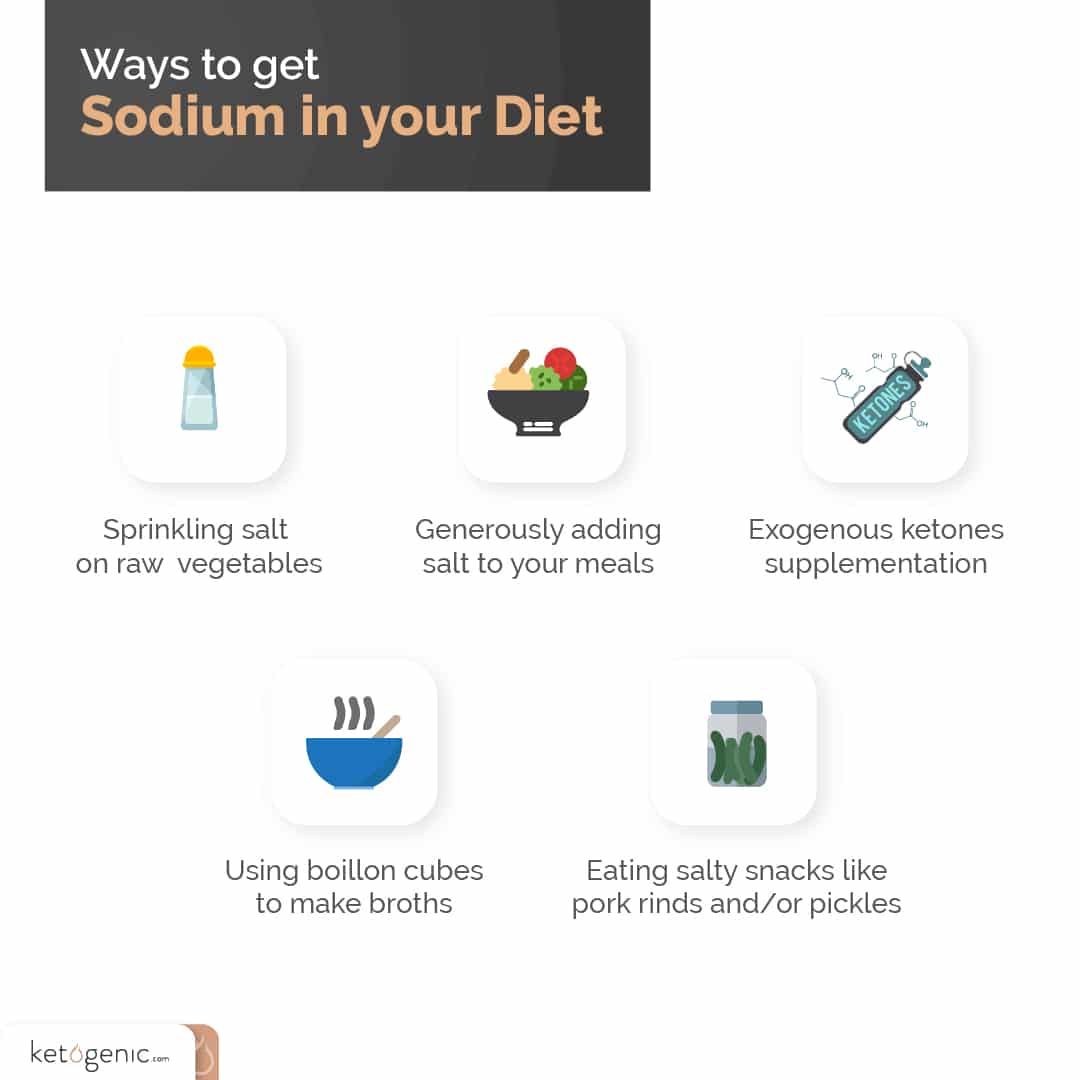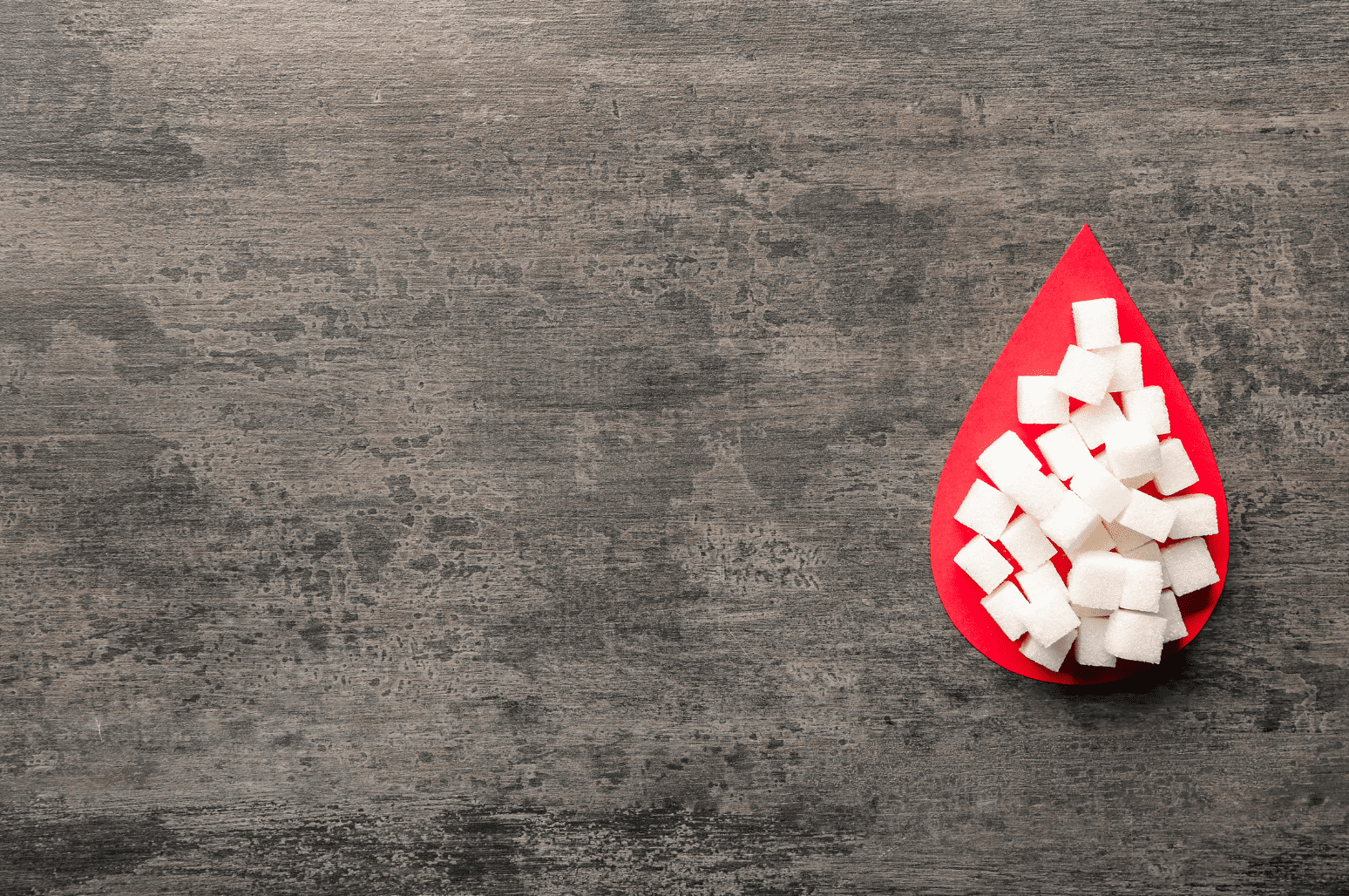
A swollen, throbbing head and sore temples aren’t fun for anyone. Headaches on keto can be a common occurrence, especially at the beginning when you’re first transitioning to this new way of eating. The good news is that you don’t have to suffer through them! There are a few simple ways to prevent headaches on kero!
What Causes Headaches on Keto?
On keto, several factors might cause headaches:
1) Low Blood Sugar Levels
Glucose is a type of sugar your body uses as a fuel source. When you shift your metabolic state on keto, your body starts primarily using ketone bodies for energy instead of glucose. For some people who aren’t as metabolically adapted or who consume a carbohydrate-heavy diet, blood sugar levels can drop, leading to headaches.
2) Dehydration
During the transition to ketosis, your body depletes its stored form of carbs called glycogen. Glycogen is bound to water molecules in the body and your body releases water when glycogen is used up [1] [2].
Your body also produces less of the insulin hormone when you’re in ketosis. The insulin hormone helps you absorb glucose from your blood and on keto, you consume less glucose and carbs, so your insulin levels drop. When insulin levels fall, your kidneys release excess sodium. This loss of water, sodium, and electrolytes can contribute to dehydration, headaches, and other symptoms of the keto flu. Other signs of dehydration include dry mouth, impaired vision, and dizziness [3] [4].

3) Overuse of Medications and Lifestyle Factors
Outside of keto, the overuse of certain medications, drugs, and diuretics can also promote dehydration and headaches. Other factors that might play a role include poor sleep and stress [5].
How Can You Prevent Headaches on Keto?
Here are some helpful tips to prevent headaches on keto:
- Stay hydrated and drink plenty of water
- Eat more low-carb water-rich foods to stay hydrated, such as cucumbers
- Consume a well-balanced ketogenic diet
- Eat more electrolyte-rich foods
- Consider salting your food to help replenish electrolytes
- Avoid over-exercising and over-exerting yourself
- Get enough restful sleep
In addition to dehydration, low magnesium and sodium are usually the two main culprits of headaches on keto.
You can replenish magnesium levels on a ketogenic diet with nutritious foods like avocado, dark chocolate, nuts like almonds and Brazil nuts, and seeds like pumpkin seeds [6] [7] [8] [9].
Salt your food to taste to add more sodium to your diet. You could use Celtic sea salt, Himalayan pink salt, Arctic sea salt, or this ketogenic-certified Redmonds real salt!
If you still have headaches after several days or weeks on keto, it might be best to consult your health care practitioner to make sure there’s not an underlying condition to blame.
How Do You Prevent Headaches on Keto?
Share your top tips for preventing headaches on keto! How do you avoid the keto flu?
References
Fernandez-Eliaz, V., Ortega, J. F., Nelson, R. K., & Mora-Rodriguez, R. (2015). Relationship between muscle water and glycogen recovery after prolonged exercise in the heat in humans. European Journal of Applied Physiology, 115(9), 1919-1926.
King, R. F. G. J., Cooke, C., Carroll, S., & O’Hara, J. (2008). Estimating changes in hydration status from changes in body mass: Considerations regarding metabolic water and glycogen storage. Journal of Sports Sciences, 26(12), 1361-1363.
Horita, S., Seki, G., Yamada, H., Suzuki, M., Koike, K., & Fujita, T. (2011). Insulin resistance, obesity, hypertension, and renal sodium transport. International Journal of Hypertension,
Riebl, S. K., Davy, B. M. (2014). The hydration equation: Update on water balance and cognitive performance. ACSMs Health and Fitness Journal, 17(6), 21-28.
Probyn K., Bowers, H., Caldwell, F., Mistry, D., Underwood, M., Matharu, M., & Pincus, T. (2017). Prognostic factors for chronic headache: A systematic Review.Neurology, 18(89), 291-301.
Self Nutrition Data. Avocados, Raw, All Commercial Varieties, Nutrition Facts and Calories.
Self Nutrition Data. Candies, Chocolate, Dark, 70-85% Cocoa Solids, Nutrition Facts and Calories,
Self Nutrition Data, Seeds, Pumpkin and Squash Seed Kernels, Dried Pepitas Nutrition and Calories.
Grober, U., Schmidt, J., Kisters, K. (2015). Magnesium in prevention and therapy.Nutrients, 7(9), 8199-8226.












